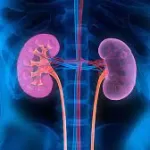Hyderabad: India has emerged as a global powerhouse in disaster preparedness, offering cutting-edge warning systems that protect not only its own citizens but also coastal communities worldwide. Union Minister Dr. Jitendra Singh emphasized this at a special event commemorating the 20th anniversary of the 2004 Indian Ocean tsunami, hosted by the Indian National Centre for Ocean Information Services (INCOIS) in Hyderabad.
Reflecting on the tragic tsunami that claimed over 230,000 lives globally, including 10,749 in India, Dr. Singh credited the disaster as a catalyst for the establishment of INCOIS. “This institution stands as a testament to India’s unwavering commitment to safeguarding lives and livelihoods,” he said, noting the transformative journey from devastation to global leadership in oceanic disaster warning.
World-Class Disaster Preparedness and Global Collaboration
India’s Tsunami Early Warning System, developed by INCOIS, has been lauded internationally for its accuracy and efficiency. The Minister highlighted India’s collaboration with UNESCO’s Tsunami Ready Initiative, which aims to create resilient coastal communities. Twenty-four Indian communities have already been recognized under this program, exemplifying the nation’s community-centric approach.
Dr. Singh announced ambitious goals under the Ocean Decade Tsunami Programme, aiming to make 100% of coastal communities worldwide tsunami-ready by 2030. “Through initiatives like these, India is not only leading by example but also strengthening global partnerships for disaster resilience,” he remarked.
PM Modi’s Vision Drives Progress
Dr. Singh attributed India’s rapid advancements in ocean research and disaster preparedness to Prime Minister Narendra Modi’s visionary initiatives, such as the Deep Sea Mission. Announced during an Independence Day address, the mission seeks to sustainably harness India’s vast marine resources, advancing the nation’s journey toward becoming a developed country (Viksit Bharat).
With a 7,500-kilometer coastline, India’s focus on ocean exploration holds significant promise for biodiversity conservation, employment, and economic growth. “Our initiatives like BioE3 [Biotechnology for Environment, Employment, and Economy] are not only enhancing marine biodiversity but also contributing to national prosperity,” Dr. Singh explained.
A Multi-Hazard Approach to Safety
The Minister underscored the importance of integrating tsunami warnings with other ocean-related hazards, such as storm surges and high waves, into a comprehensive multi-hazard early warning system. Such advancements, he stated, would ensure continued protection against evolving oceanic risks.
Synergy Between Policy and Science
Dr. Singh highlighted the government’s proactive support as a key driver behind India’s progress in space and oceanographic sciences. He hinted at groundbreaking milestones ahead, including plans to send an Indian into the deep sea and another into space by 2026.
INCOIS: A Beacon of Global Leadership
As a UNESCO Category 2 Training Centre, INCOIS plays a pivotal role in international capacity-building and knowledge-sharing. Its leadership in the Ocean Decade Tsunami Programme has reinforced India’s status as a global hub for ocean-based disaster management.
Dr. Singh concluded by reaffirming INCOIS’s integral role in achieving India’s Vision 2047, a blueprint for self-reliance and resilience. “By exploring untapped marine resources and ensuring disaster readiness, INCOIS is shaping a safer and more sustainable future for India and the world,” he said.
The event was attended by senior officials, including Dr. M. Ravichandran, Secretary of the Ministry of Earth Sciences, alongside eminent scientists and policymakers, celebrating two decades of achievements while charting a path forward for global disaster resilience.











